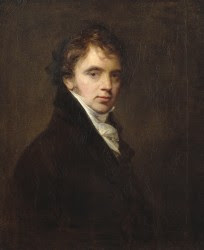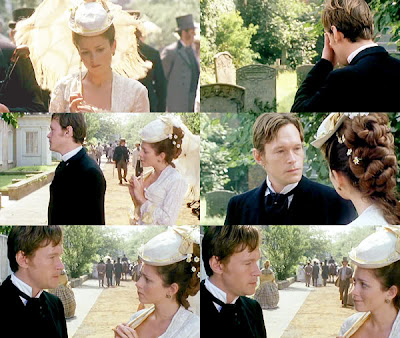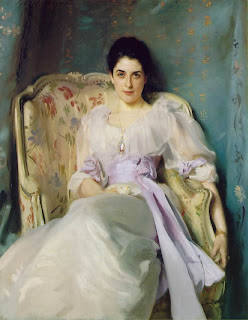

It's time to wrap up at Austenprose. The winners have been announced, the schedule has been completed.
Austenprose, Laurel Ann’s wonderful blog, has hosted an exciting group reading experience named “
A Soirée with Lady Susan”from September 1 to 14. Reading Jane Austen’s minor works was also part of my
EVERYTHING AUSTEN CHALLENGE so I decided to read Lady Susan according to the schedule suggested by Laurel Ann and take part in the soirée. Among Austen's minor works, I have already read
SANDITON, a fragment completed by Juliette Shapiro, and still have to read another fragment THE WATSONS.
Lady Susan

An “epistolary novel” written almost entirely in the form of letters sent between characters, Jane Austen’s
Lady Susan has rarely been staged and never filmed, despite its audacious heroine and lively plot. Fascination and deception come naturally to the beautiful widowed Lady Susan who manages, “without the charm of youth,” to captivate every man who comes within her orbit. She schemes to marry the gentlemanly Reginald De Courcy while enjoying the attentions of the rakish Manwaring and consigning her sweetly intelligent daughter to dubious marital felicity with a vacuous dandy – all to the chagrin of her highly respectable former sister-in-law.
Jane Austen’s
Lady Susan has never received much attention in comparison to her other six major novels. It is only
70 pages and consists of
forty-one letters and a conclusion. Scholars estimate that it was written between
1793-4 when the young author was in her late teens and represents her first attempts to write in the epistolary format popular with many authors of her time. In 1805, she transcribed a fair copy of the manuscript but did not publish it in her lifetime. Lady Susan begins to explore many of the themes of Austen’s later works, and amply demonstrates the wit that would become the author’s hallmark.

Although the themes, together with the focus on character study and moral issues, are close to Jane Austen's published work, its outlook is very different, and the heroine has few parallels in 19th-century literature. Lady Susan is a selfish, attractive woman, who tries to trap the best possible husband while maintaining a relationship with a married man. She subverts all the standards of the romantic novel: she has an active role, she's not only beautiful but intelligent and witty, and her suitors are significantly younger than she is (in contrast with Sense and Sensibility and Emma, which feature marriages of men who are old enough to be their wives' fathers). Although the ending includes a traditional reward for morality, Lady Susan herself is treated much more mildly than the adulteress, Mariah, in Mansfield Park, who is severely punished.
Was young Jane fascinated by her wicked creature? I actually think so. Lady Susan Vernon is a totally free woman who, unlike Austen's major heroines, isn't molded nor bent by conventions, formality and good manners but bends them at her own convenience.
My Journal of the Soirée
September 2nd - Letters I – XI

Lady Susan reveals herself surprisingly … unconventional. I thought Emma was the most “imperfect” – and for this reason the most human , realistic and likeable - among Austen’s heroines but reading the first eleven letters I’ve immediately realized Lady Susan was pleasantly … evil: vain, selfish, enterprising, free, cold, emotionless, deceitful. May I stop here? Despite all that, just like Mr Manwaring or Reginald De Courcy, one can but be charmed by “the most accomplished Coquette in England” because she indeed “possesses a degree of captivating deceit which” IS “pleasing to witness & detect”.
If I have to be utterly honest there is something I do NOT like in her: as a mother, I found incredibly disturbing her indifference, if not cruelty, to her daughter, Frederica. Her calculated subtle deceiving trick of faking an interest in her daughter’s education - but in a boarding school far from home and everybody the girl knew - in order to push her to marry Mr James ( a man Frederica deeply disliked) was awfully evil!
September 5th - Letters XII – XXII

- I’m enjoying this reading more and more. Twists and turns make this second part, letters XII – XXII , quite thrilling. For instance, the unexpected attempt to escape reveals Frederica’s personality and real situation to the reader who, so far, has known her only from her mother’s point of view - which is not very positive at all.
- Another satisfying turn involves the character of Reginald de Courcy who, after meeting Frederica, realizes he has been blinded by Lady Susan skillful charming art : she has manipulated him just like any other person around her. When that happened, I was a bit disappointed at seeing him take Lady Susan's bait, since I had had a different impression of him at the beginning ( Mr De Courcy to Mrs Vernon - IV).
- Now that Frederica asks HIM for help against the wicked plans of her mother everything seems to turn against wicked Lady Susan. But reading the last lines of letter XXII I expect new turns and twists due to her devilishly vindicative rage : “She –Frederica- shall not soon forget the occurrences of this day. She shall find that she has poured forth her tender Tale of Love in vain, & exposed herself forever to the contempt of the whole world, & the severest Resentment of her injured Mother”. She is terribly jelous, she had not expected to find a rival in her daughter! Reginald seems to prefer Frederica to her! I’m looking forward to discovering what is going to happen … I’m avoiding spoilers as much as I can and respecting the deadlines in our reading schedule!
September 9th – Letters XXIII - XXXIII

I’ve just closed my copy of Jane Austen’s Minor Works at page 304. I was SO tempted to go on reading but this forcing myself to respect the deadlines of our schedule is making the experience much more thrilling and , as I already wrote, great fun.
1. Reading and re-reading this third group of letters, I started reflecting on young Jane Austen being so masterful in the use of language. If she created an incredibly skillful heroine who could master people and the same course of the events with her ability in using words like Lady Susan, how good did she herself have to be with words? She was indeed an already wonderfully talented young writer though only in her teens!
2. I’ve been particularly charmed by evil characters recently. Especially well written or well acted ones. Not the stereotyped flat villains but those with a certain complexity and psychological insight. This Lady Susan is the result of a particularly free Austen. She is definitely and devilishly wicked. In the letters to her friend, Mrs Amelia Johnson,

L.S. reveals the most evil of her feelings, her most unscrupulous soul, she confesses with no dismay all her worst thoughts. She is so confident in her skills and feels no sense of guilt at all nor any regret for what she does. Once her affair with Mr Manwaring is revealed to Reginald – who wants to marry her! – and to Mr Johnson by Mrs Manwaring herself Lady Susan is so bluntly sure of herself: “Reginald will be a little enraged at first, but by Tomorrow’s dinner, everything will be well again”. These evil soul are so fascinating! Don’t you think so?
3. I like Mrs Catherine Vernon ( Lady Susan sister-in-law) much. She is the only one who is not subjected to Lady Susan’s schemes and tricks. So, this means she must be quite intelligent and very sensitive. She is balanced and pragmatic, so different from Lady Susan. But she is her only real antagonist, the only one who can cope with her in a fair confrontation.
4. Last but not least, I hoped Reginald was the hero of this novel but it seems Jane Austen had not a very high esteem of men in that period of her life (What about the rest of her short life, I wonder?!?) if we have to judge from the men we meet here and so far! What disappointment! They are really at the mercy of the women around them! Look at poor Mr Johnson, dead Mr Vernon, Lady Susan’s brother , Mr Manwaring (soon found out by his wife!), young Reginald. Not a dashing bunch of heroes!
12 September - Letters XXXIV – XLI
 Even the epilogue of this novella is rather unusual. Lady Susan is bad to the bone - forgive me for this not very Austenish expression - and she ends up happily married with a well-off younger man. She is not fully rewarded but not punished either. She does not fullfil all her plans but she is not beaten either. Incredible Jane Austen!
Even the epilogue of this novella is rather unusual. Lady Susan is bad to the bone - forgive me for this not very Austenish expression - and she ends up happily married with a well-off younger man. She is not fully rewarded but not punished either. She does not fullfil all her plans but she is not beaten either. Incredible Jane Austen!
Boldness, impudence and brass prevail in Lady Susan’s behaviour till the end. Once her falsity and her secret affair with Mr Manwaring are revealed, she doesn’t show any discomfort nor regret. She plans her revenge on Reginald, who dared disert her, and on Mrs Manwaring, who ruined her affair . She will use fragile Frederica to get to her revenge: “… Frederica shall be Sir James’s wife … She may whimper & the Vernons may storm; I regard them not. I am tired of submittin my will to the Caprices of others – of resigning my own judgment in deference to those… (Letter 39 p. 308)
 Is there any good in this woman? Not at all. She is one of the most wicked and unscrupulous heroines I’ve ever met in fiction. Never as a protagonist, anyhow, rarely as an antagonist.
Is there any good in this woman? Not at all. She is one of the most wicked and unscrupulous heroines I’ve ever met in fiction. Never as a protagonist, anyhow, rarely as an antagonist.
What about the last sensational turn? When she apparently seems worried about her daughter’s health? No way. She is not changing, no motherly affection: she just wants to get rid of Frederica, leave her at her aunt’s and uncle’s, in order to enjoy her marriage to Sir James!
And how about my hero? Reginald . Again, I was quite disappointed. It took him 12 months to propose to Frederica! Was it because he had been pondering the fact that, so doing, he was going to make Lady Susan his mother-in -law? If so , his indecision can be forgiven.
"Adieu, my dearest Susan, I wish matters did not go so perversely. That unlucky visit to Langford! but I dare say you did all for the best, and there is no defying destiny". (Mrs. Johnson, Letter 38 )
Thanks Austenprose. Thanks Laurel Ann. Till next soirée. Adieu. Arrivederci.

 Sue Johnston (The Turn Of The Screw, Waking The Dead), stars as Betty in the Eighties opposite Alun Armstrong (New Tricks) who plays her devoted, if dull, husband, Donald.
Sue Johnston (The Turn Of The Screw, Waking The Dead), stars as Betty in the Eighties opposite Alun Armstrong (New Tricks) who plays her devoted, if dull, husband, Donald.
 The younger Donald is played by Alun Armstrong's real-life son Joe Armstrong (on the left, Allan-a-Dale in Robin Hood), in his first on-screen appearance with his father.
The younger Donald is played by Alun Armstrong's real-life son Joe Armstrong (on the left, Allan-a-Dale in Robin Hood), in his first on-screen appearance with his father. 




















































